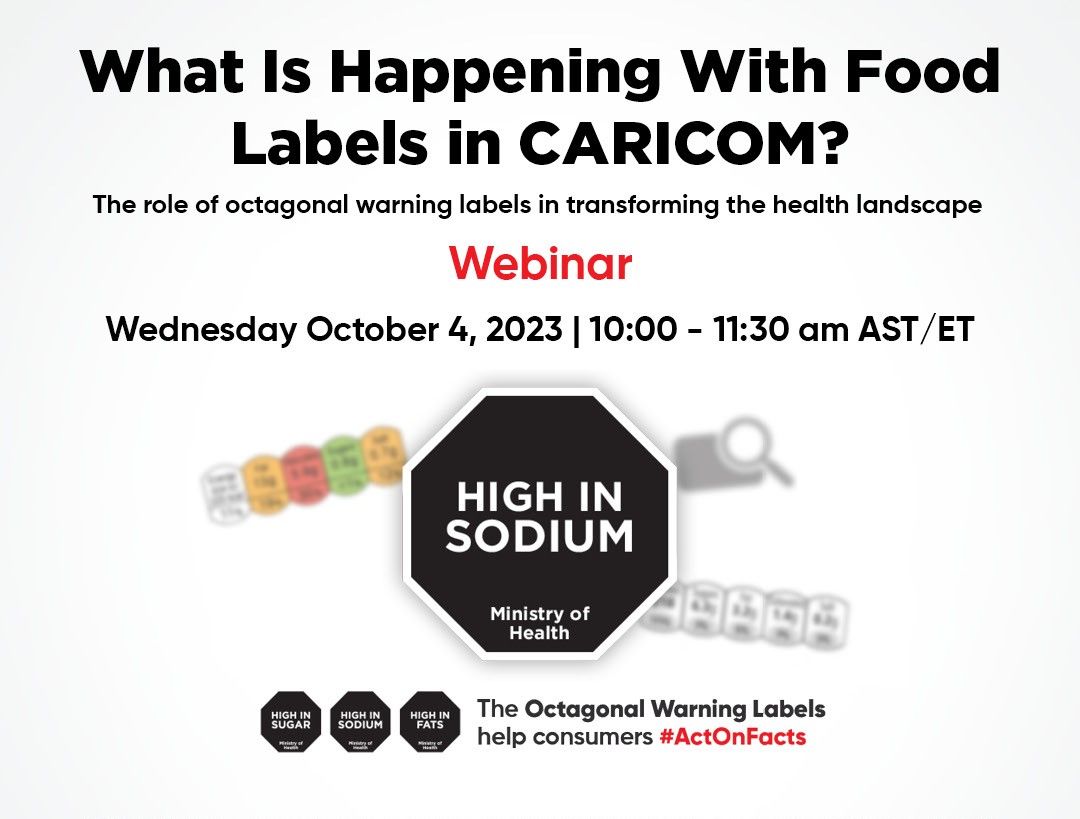Octagonal Food Label- A Must
Official Remarks of the OECS Director General at the What Is Happening with Food Labels in CARICOM Webinar
Ladies and Gentlemen, distinguished guests, and fellow advocates of healthy and informed living.
Octagonal Warning Labelling is a critical initiative that must be actioned for many reasons. First and foremost, these labels are front-line tools in the fight against unhealthy food with excessive sugars, fats, and salt. Consumer awareness can empower buyers to make intelligent healthy choices about what they eat. This can benefit Caribbean manufacturers by opening new trade opportunities for tropical products that respond to the growing global consciousness and choice for healthy foods.
The OECS is proud to be part of this effort that weaves the threads of health, consumer rights, and cross-border collaboration into a cohesive tapestry.
Navigating the complex landscape of nutrition should not be a privilege, but a fundamental right accessible to all. Through the implementation of octagonal food labels, we seek to fortify public health by fostering informed food choices and nudging manufacturers towards reformulating their products to healthier alternatives.
In a world where non-communicable diseases, such as diabetes and cardiovascular conditions, continue to climb the ladder of global health threats, it is imperative that we act collectively to stem this tide. The octagonal food labelling system not only assists in making immediate healthier food choices but also works as a subtle, yet constant reminder of the pertinence of nutritional vigilance.
As a region, embracing this system amplifies our unified commitment towards safeguarding the health and wellbeing of our citizens. It emphasizes our collective pursuit to advocate for transparency, accountability, and consumer empowerment in the food industry across our integrated nations.
Moreover, our unified adoption of octagonal food labelling builds a platform for harmonization among our member countries, simplifying trade processes, and reducing barriers by establishing a common language in food health and safety standards. This, in turn, ensures that the foods traversing our borders comply with a collective, stringent, and health-focused standard, protecting and promoting the welfare of our regional populace.
Let us illuminate a lifetime of healthier choices for our people. Let us envisage a future where the simplicity of an octagon ignites a profound change in our food industry, propelling our region towards a horizon where our citizens are empowered, our industries are responsible, and our nations stand united under the banner of health, sustainability, and cooperative prosperity.
As we forge ahead, may our efforts seed a future where each octagon serves as a shield, safeguarding the health of our communities, and bolstering the foundation upon which our regional integration stands tall.
Thank you for your attention, and may our path forward be shaped by collective responsibility, actionable change, and sustained wellbeing.
